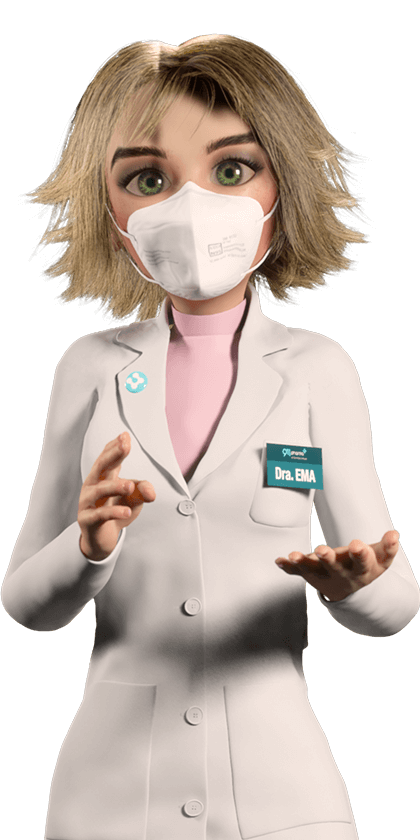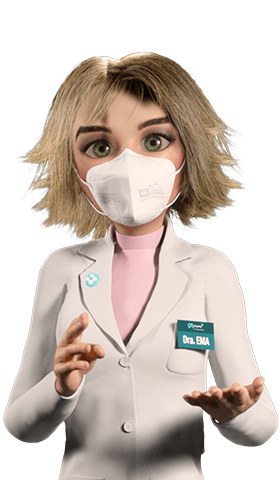COVID-19
Knowing to prevent!
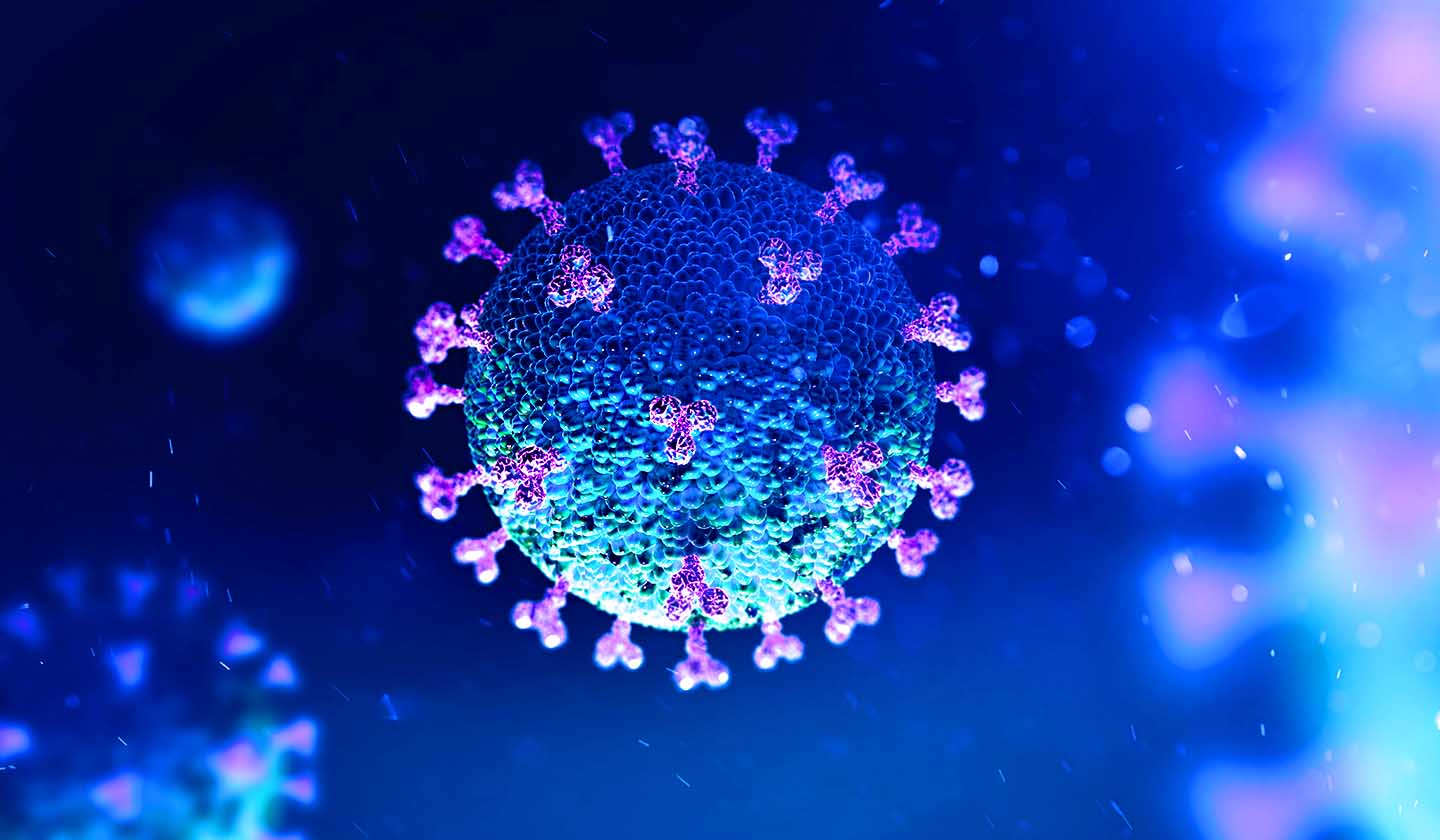
The world is worried about the infection caused by a new coronavirus (COVID-19). The best way to combat a disease is to know about it in order to know how to prevent it and how to act when there is a suspected infection.
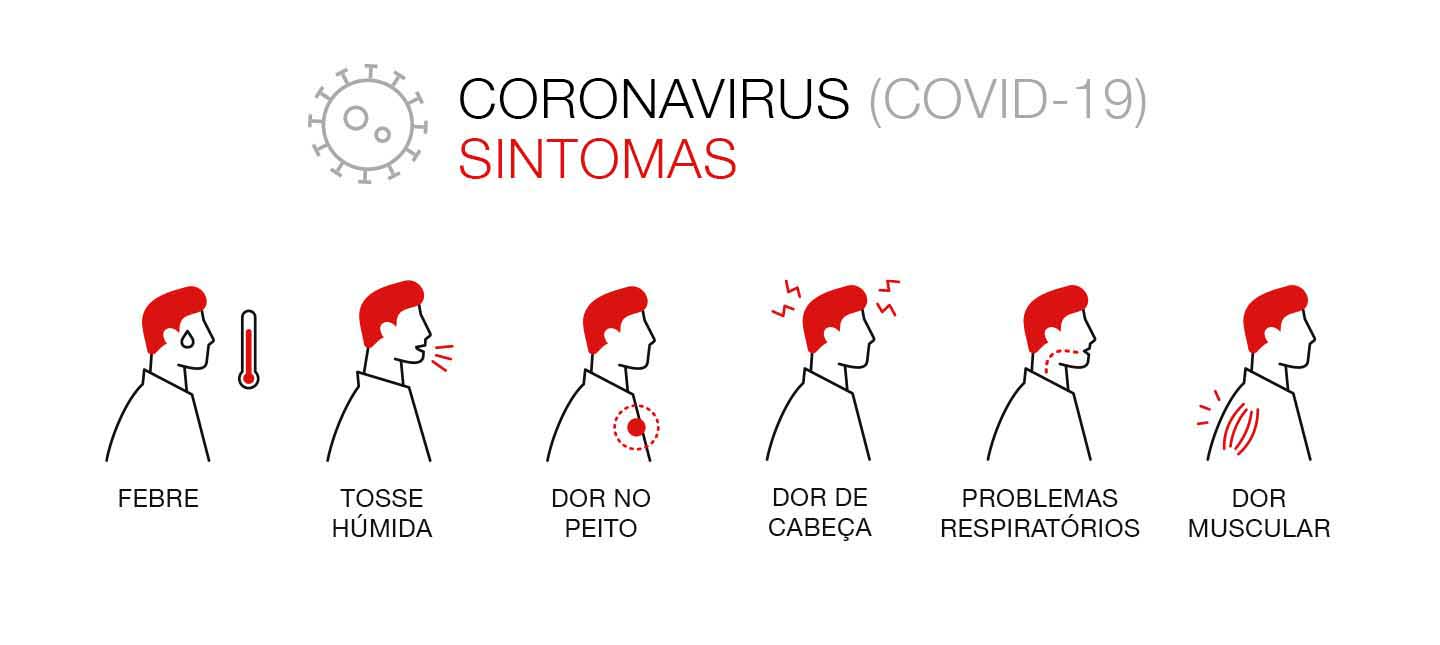
What is COVID-19?
It is the disease caused by a virus of the coronavirus family which mostly presents similar manifestations to the common flu:
- fever;
- cough;
- shortness of breath.
There are cases that can develop into a more serious illness, such as pneumonia.
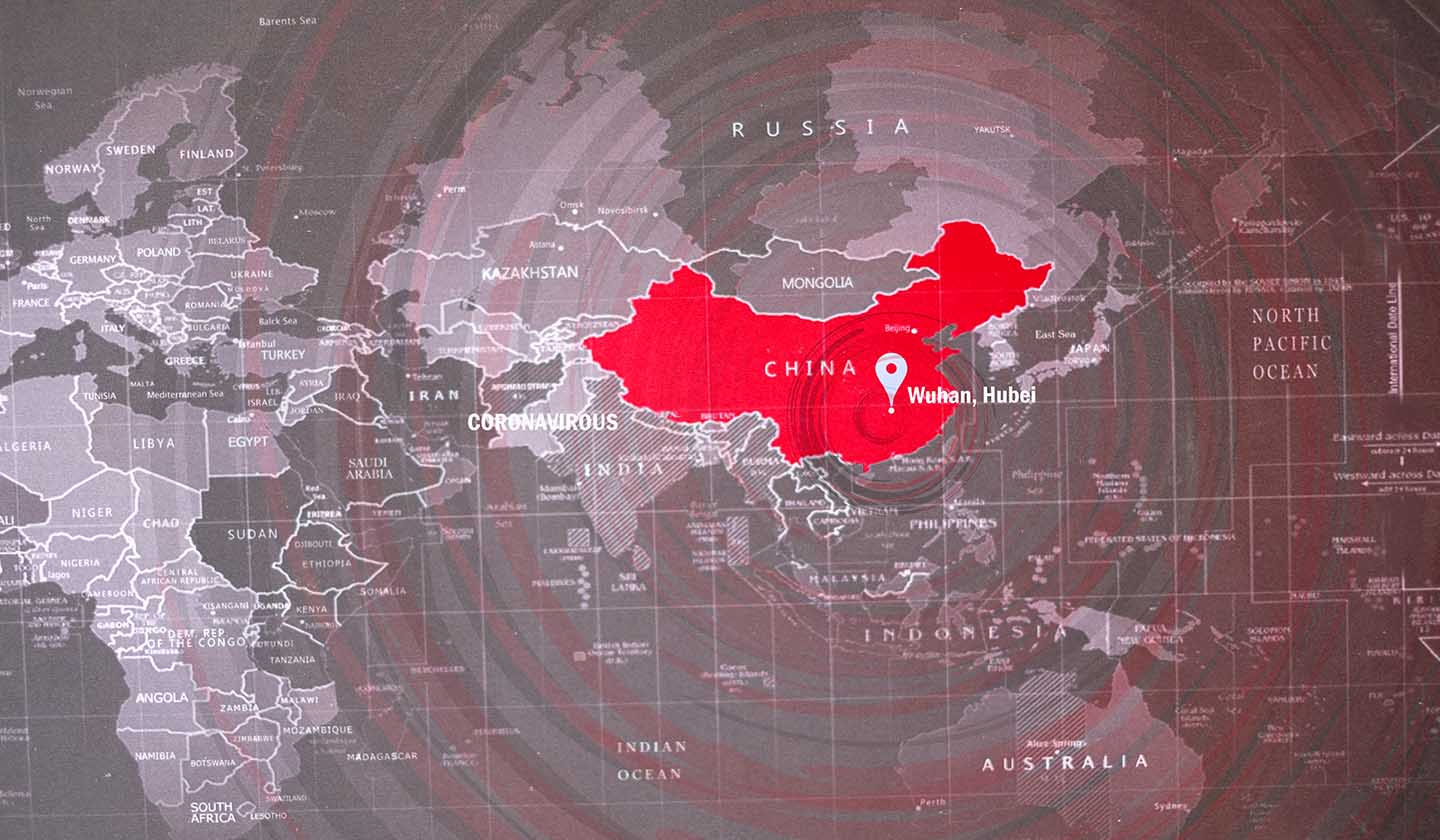
Where does it come from?
WHERE: Most of the cases identified so far are in China, but some cases have been detected in other countries, including Europe.
HOW: The source of the infection is not yet known, but it is believed that it may have an animal origin - most of the initial cases are associated with people who frequented a live food and animal (fish, seafood and poultry) market in Wuhan.
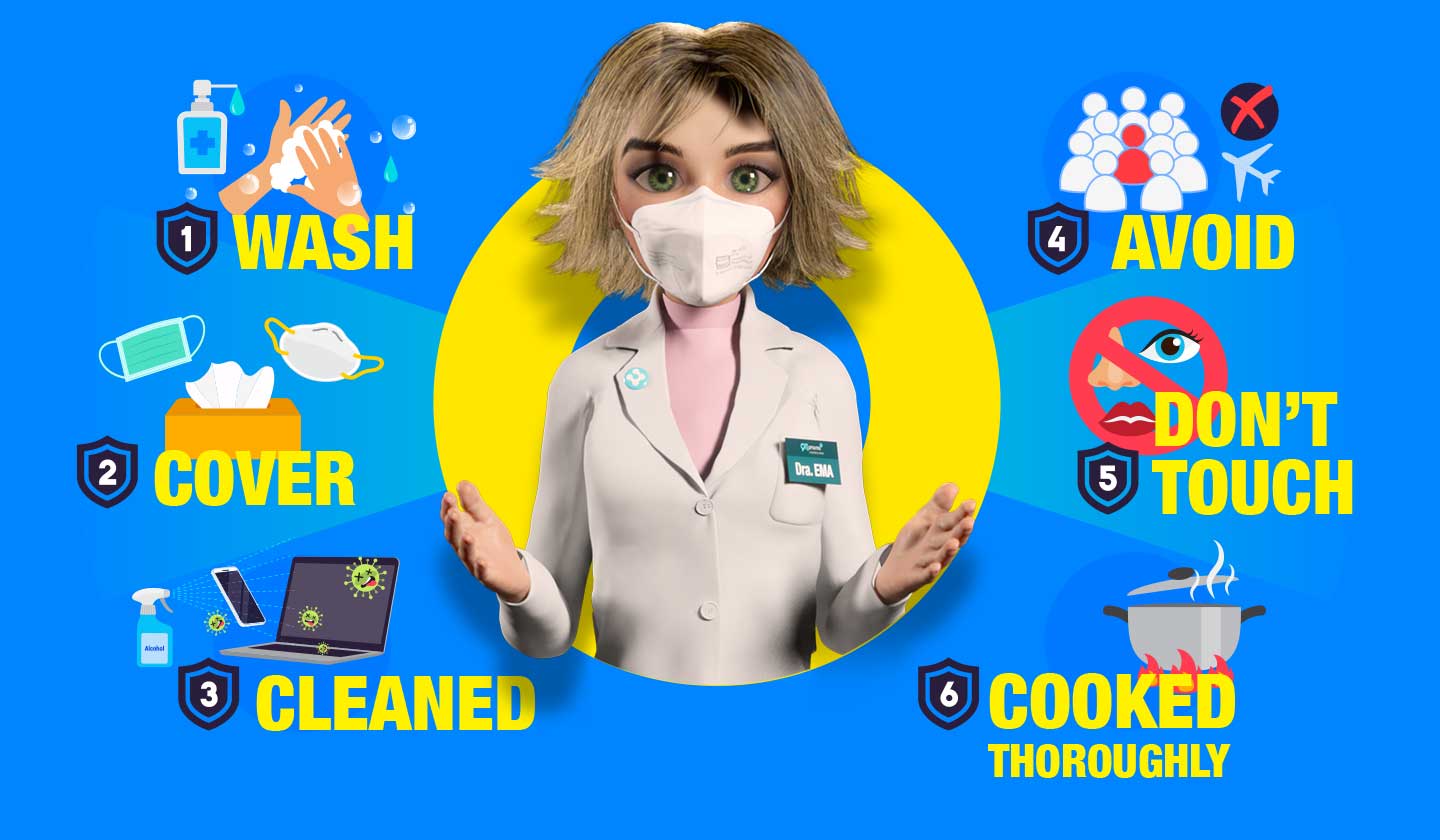
How is the virus transmitted?
By the respiratory route - that is, through the air, in the droplets expelled when you sneeze or cough, for example.
Indirect transmission (through objects contaminated by infected people - e.g. by sneezing) is also thought to exist, as preliminary studies suggest that the virus survives for a few hours on contaminated surfaces.
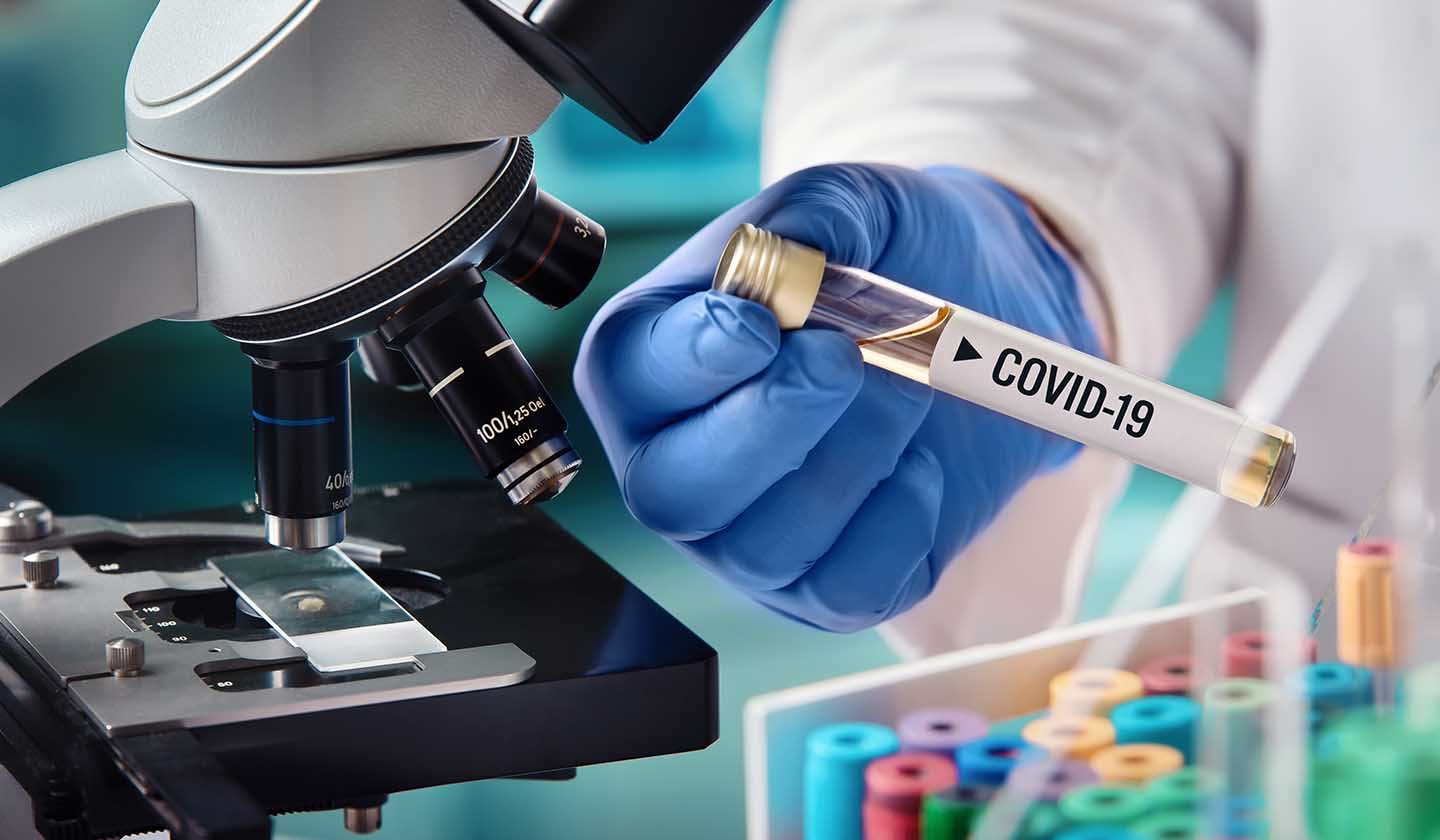
Is there Treatment?
Despite the availability of vaccines for COVID-19, group immunity (70% of the population immunised) has not yet been achieved.
Thus, and particularly in the most affected countries:
Avoid close contact with people with signs of respiratory infection such as coughing, stuffy and/or runny nose and difficulty breathing;
Avoid contact with wild or farm animals and the consumption of raw or undercooked animal products;
Wash your hands frequently with soap and water or with a 70° alcohol-based product (liquid, gel or wipes), especially after sharing a space with potentially ill people (e.g. on public transport or in shopping centres) and whenever you blow your nose, sneeze or cough;
Take measures for respiratory etiquette - cover your nose and mouth whenever you sneeze or cough, with a tissue or your arm (never with your hands). Put the tissue in the bin and if possible wash your hands or disinfect them with an alcohol-based solution; wear a mask if necessary.
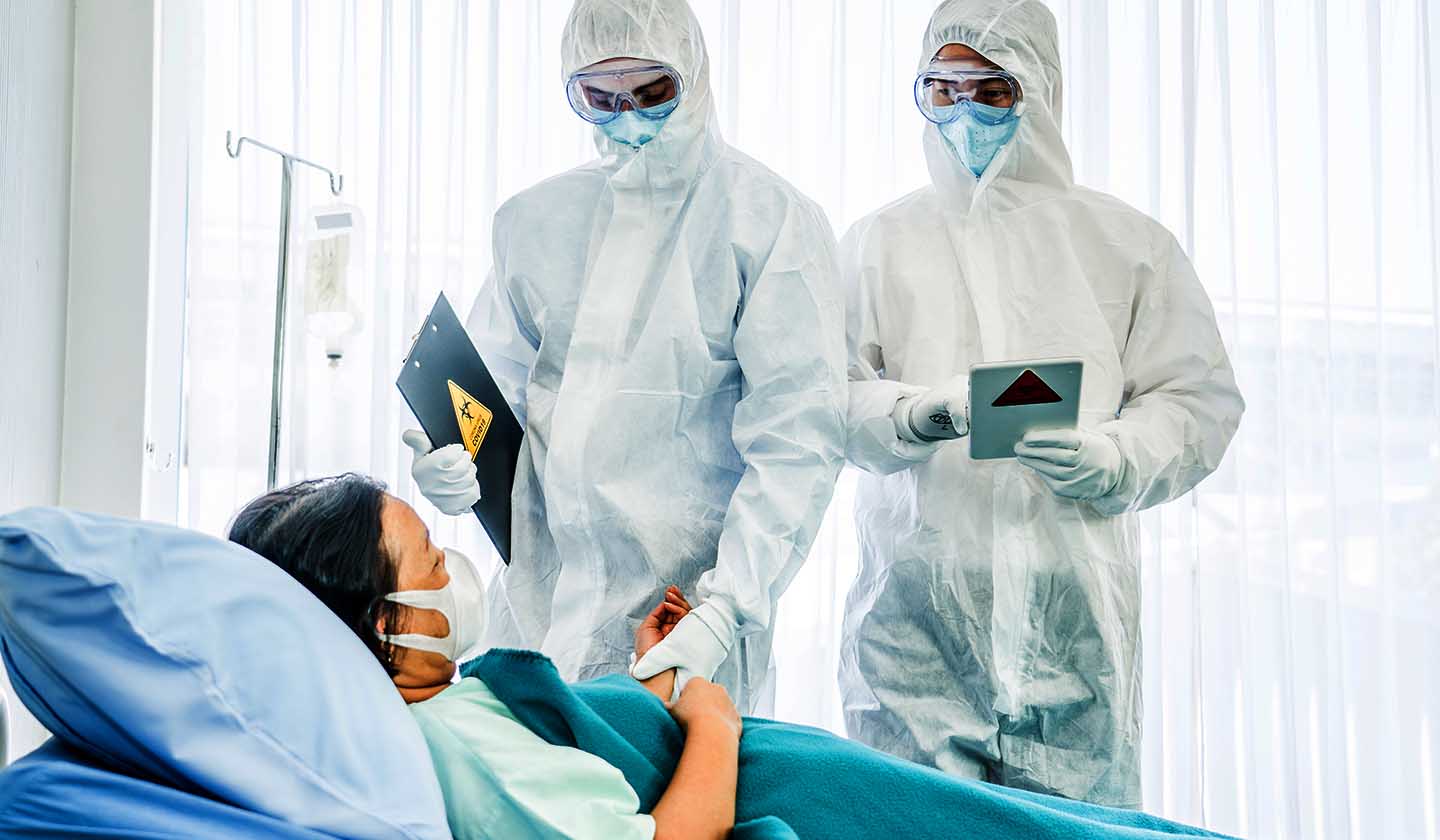
I suspect I am infected. Now what?
Portugal is prepared to respond in case of disease - several measures are being implemented to prevent and control the infection.
If you have recently been in areas affected by COVID-19 or contacted someone infected, watch for possible respiratory symptoms (fever, cough or shortness of breath) within 14 days of return/contact. If you have signs or symptoms, call SNS 24 (808 24 24 24) immediately.
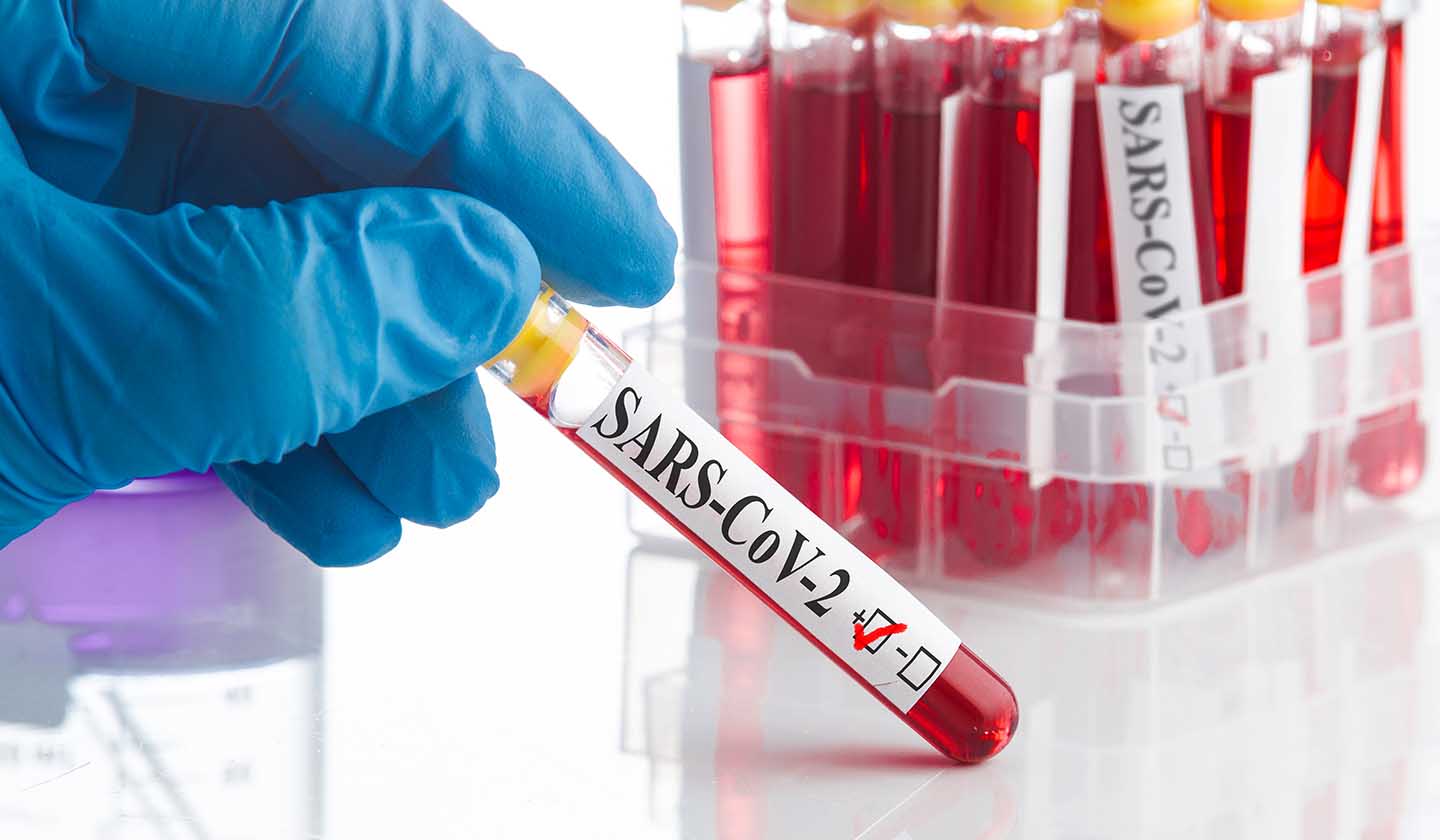
Did you know that...?
There have been more outbreaks associated with coronaviruses (between 2002 and 2003, the SARS-CoV coronavirus, responsible for severe acute respiratory syndrome, was identified, and in 2012, the MERS-CoV coronavirus, responsible for Middle East respiratory syndrome).
Where can I get more information?
Being informed is the first step! The Directorate-General for Health (DGS) is closely monitoring the situation, validating and continuously making available all updates on COVID-19, at: www.dgs.pt.
Sources
iSaúde
Farmácia Distribuição Magazine
Também lhe poderá interessar
COVID-19
Shall we learn how to wash our hands?
COVID-19
